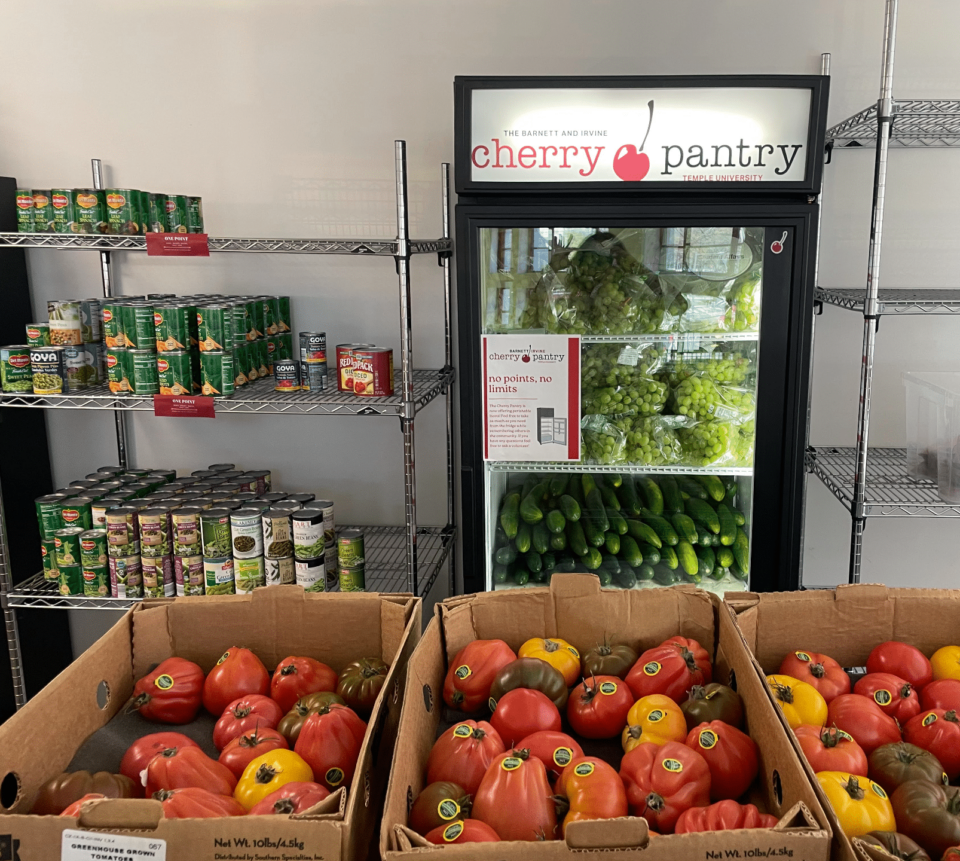The one-sentence version of the film Fed Up: Sugar is killing America.
Okay, that may be a gross oversimplification, but the filmmakers would argue that although sugar is the “bad guy,” it’s the “system” that encourages demand for more in the marketplace. This becomes a key contributor to the problem of Americans consuming increasingly dangerous amounts of sugar in their diets. The unfortunate current reality is: sugar is everywhere. Sugar in any of its over 50 varieties can be found in even the most unsuspecting of foods. We may think we are being “healthy” by choosing alternatives such as foods “low in fat” or “only x calories per serving,” when in reality these foods are laden with hidden sugars that wreak havoc on the body and lead to a plethora of adverse effects, not to mention triggering a vicious cycle of eating. Evidence presented in the film suggests that the primary causes of obesity in the United States are linked to the large quantities of sugar found in processed foods that are being consumed in ever-increasing amounts by adults and children alike.
Why I went:
In the last year or so I’ve embarked on a somewhat unfamiliar journey into mindful, healthful eating. This is fairly new territory for me, but having three children, realizing that my body won’t always be as resilient as it was when I was 20 years old and the sobering truth that my own attitudes toward food will forever impact my childrens’ lifelong health have brought me to a place where I’m willing to consider change. Some of the films I’ve previously watched with an eye toward health consciousness include Fat, Sick and Nearly Dead, Hungry for Change and Forks Over Knives, to name a few. I admit, I love getting charged up after watching a food documentary with a renewed sense of commitment toward making healthier food choices, so when I found out that my favorite local (and beautifully historic) theatre would be having a special showing of the film Fed Up complete with an expert panel and community discussion, I knew I’d be among those in attendance.
What I expected:
Anytime I sit down to watch a movie or even a news broadcast, I look at what’s being presented with a critical eye in the sense that I pay attention to who is packaging the information. I do this to attempt to carefully weigh what I’m hearing and seeing with the potential bias that may be inherently contained in the messaging. Having watched Katie Couric over the years in her role as a news anchor, journalist and television personality, I wasn’t totally sure whether the narrative would be of the “softball” variety (palatable for most audiences and therefore less controversial) or if it would take a serious look at the problem of our nation’s health and “call out” even big names in both our government and in the private sector for aiding and abetting public enemy #1: sugar. In addition, I was curious to see if there would be a noticeable air of superiority by those who were “in the know” (experts, nutritionists, and those with the wallets to afford all organic all of the time) versus an ignorant majority who blindly filled their mouths and cupboards with processed foods and empty calories. I was on the lookout for any kind of arrogance about being among those in the “enlightened” (aka Sugar Is Evil) camp or any attitudes of condescension toward the “victims” of The System.
What I got:
I was pleasantly surprised. I quickly received an education about the many historical landmark decisions made by our government that caused sweeping changes and a long-lasting ripple effect in the foods we eat, the products we consume and products specifically developed, engineered and marketed for our consumption. The film went so far as to “name names” of individuals who are part of the problem by either failing to inform or by directly misinforming the public as to HOW we should be getting healthier. Even First Lady Michelle Obama wasn’t spared. The First Lady is adored for everything from her sense of style to her toned physique, and as a darling of the mainstream media she remains an advocate for childhood health, launching the program “Let’s Move” to “solve the epidemic of childhood obesity within a generation.” The filmmakers argue that many who began the crusade to a healthier America have essentially been “bought” by powerful names and businesses who stand to lose should the truth about sugar make it to the ears of the American public. Instead of being encouraged to limit sugary, processed foods from our diets in favor of a whole-foods approach, Americans are being told to focus on more exercise and, regarding our diets, to remember the simple “calories in, calories out” approach. One of my favorite lines from the movie is delivered by Dr. Dariush Mozaffarian, associate professor of medicine and epidemiology at Harvard Medical School, when he adamantly states that, “A calorie is, in fact, not a calorie.” At first blush, even I could spot the illogical nature of such a statement, but he went on to describe the effects of an empty calorie (totally void of any nutritional value) on the body versus a calorie consumed from a food that contains inherent nutritional content. Very simply: the body’s response to sugar, especially when that sugar is processed and added to the foods we eat, is at best a short-lived moment of ecstasy and at worst an addictive and even cancer-feeding pollutant we happily feed our bodies.
Where they lost me:
The film made what I consider to be a fairly big leap when they compared the sugar industry to big tobacco. Sure, I could see the similarities, and absolutely we need to consider whether there are systematic efforts to deceive the American public in an effort to knowingly cause harm where it can be prevented, but one must dial back the conspiracy theories if we are to make some real progress on this issue.
As an individual who works in the field of communications, I certainly understand the power of the free marketplace. I’m also fully in favor of companies using whatever (legal and ethical) strategies available to sell their goods and services to the American public. More power to the creative “Mad Men” (and women) of the world today. But that certainly does not excuse ongoing vigilence of said marketplace. That said, I wholeheartedly reject the insinuation that we are all simply victims of our environment and that we are virtually defenseless against the barrage of incoming messaging about sugar and powerless against our brain & body’s compulsive desire to indulge in a nonstop ride on the sugar train. Believe me, I’d love to point the finger of blame at any direction but myself, but blame (whether deserved or not) simply doesn’t solve the problem. Additionally, I feel increasingly disillusioned at the notion that personal responsibility for our own bodies, our own health and our own well-being is dismissed in favor of a government that we insist handle even the minutea of our everyday lives. I’d like to think that educating the uninformed public coupled with the tools and encouragement to succeed at living a more healthful life would be all that is required. The reality is: any tool, education, skills or otherwise, is only useful if it is picked up and actually USED. And here is where a local response, like the one being generated in my own small town, can be the key to communities and individuals succeeding at lasting change and creating wellness efforts that outlive even the most inspirational of health documentaries.
Statistics that surprised me:
Sugar is eight times more addictive than cocaine.
Sugar is currently added to 80 percent of processed foods on U.S. store shelves.
My conclusion:
They sold me on the evils of processed sugar and its effects on the human body. In addition, I have now been properly educated on the important historic research studies and resulting policy changes occurring within the last 50–100 years that have led to our current state of affairs related to the American diet. I’ve definitely had my eyes opened to the powerful ability of government laws, regulations and studies to affect American consumption and public opinion as it relates to our diets and our collective consciousness about wellness and what it means to be healthy. I left the movie with a newfound sense of responsibility toward being a good steward of the truth found in simple reality that the most effective way to improve anyone’s diet is to simply eat real food in spite of the many convenient options available in bags and boxes, covered with plastic, cardboard and containing warnings and labels of every shape and size. If I’m to be completely honest with myself, I already knew that whole foods were healthier than packaged foods, I just didn’t know HOW bad those packaged foods actually were.
Where the movie fell short:
I was all ready to burn my bags of sugar and ditch my overprocessed (albeit beautifully packaged) items in my pantry until the movie seemed to suddenly end without giving me a plan of action. I felt that the film brought the issue to a beautiful crescendo then failed to catapult its audience into change. Instead of focusing on what viewers should do, the emphasis seemed to be on what not to do and who is responsible for things being done that have taken us in the wrong direction. Although those things are an important part of the story, I had hoped to hear more about what I can do now that I know more about the hidden sources of sugar and its negative effects on my health and well-being. With that in mind, I wanted to close on a positive note and leave you with PA Eats’s list of 10 totally doable changes anyone can make to limit sugar in their diet.
Fed Up debuted at the Sundance Film Festival, opening in limited release in the U.S. on May 9, expanding to other cities through summer and fall 2014. The film, released by Radius/TWC, was directed, written and co-produced by Stephanie Soechtig (Oscar-winning producer of “An Inconvenient Truth”), with TV personality Katie Couric co-producing and narrating.



